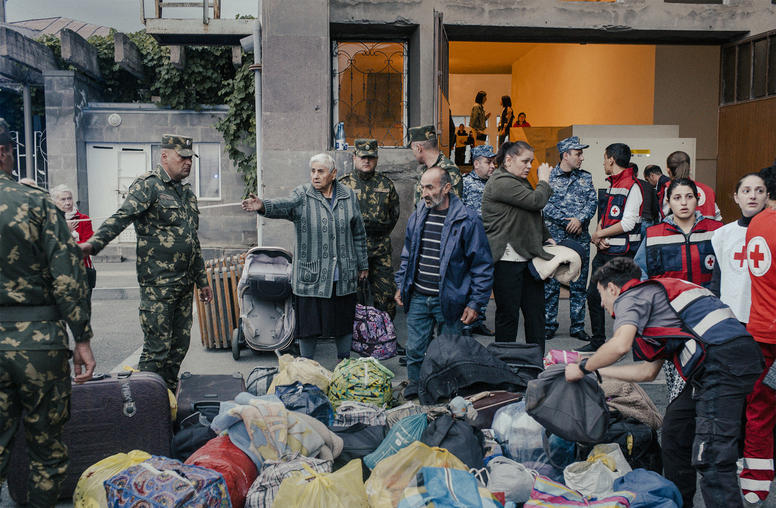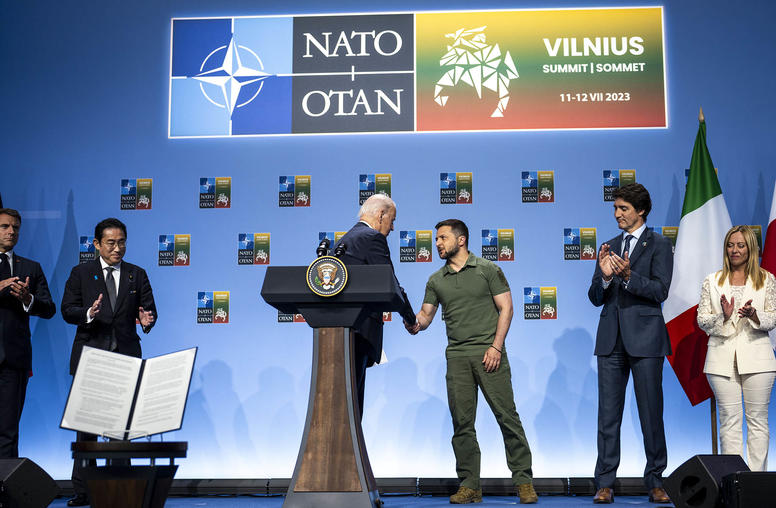Research & Analysis
U.S. Institute of Peace’s articles, reports, tools and other features provide policy analysis, research findings, and practitioner guides. These publications examine critical conflict issues at the center of the Institute’s work to prevent and resolve violent conflict.
The views expressed in these publications are those of the author(s).

Mona Yacoubian on the Regional Reverberations of Assad’s Fall
The fall of Assad is “nothing short of a tectonic shift in power” across the Middle East, with Iran emerging as “the biggest loser” and Turkey “positioned to be a big winner,” says USIP’s Mona Yacoubian. But “the situation is going to bear very close watching … the stakes in Syria aren’t just regional, they’re global.”

The Nagorno-Karabakh Imperative: Protect Civilians, Revive Diplomacy
The long conflict over Nagorno-Karabakh this month recaptures global attention the only way it ever has: through new bloodshed. Azerbaijan’s swift seizure of the ethnic Armenian enclave has ignited a humanitarian crisis. Most of the territory’s 120,000 residents are fleeing to Armenia, raising the specter of ethnic cleansing. The international community must urgently secure safety for civilians, long the primary victims of this war.

The NATO Summit: Three Takeaways for Europe, War and Peace
This week’s NATO summit conference wrought significant advantages for Ukraine in its fight for independence, and on behalf of Europe’s security. Ukraine and most NATO members sought an unconditional invitation for Ukraine to join the NATO alliance following its war with Russia. They achieved part of that goal — a shorter, clearer path to Ukraine’s membership, USIP analysts note. Turkey’s reversal, to support Sweden’s accession to the alliance, strengthens the community backing the Ukrainians’ self-defense. While the summit had no prospect of lightening the burdens of defending Ukraine, Europe and the international rule of law, it accomplished what was achievable in the moment.

Donald Jensen on What the NATO Summit Means for Putin
The NATO summit cleared major hurdles for Sweden to join the alliance and offered a consensus for Ukraine’s eventual accession. With Moscow still dealing with the fallout from Prigozhin’s recent uprising, signs indicate that “Putin is now weaker than anybody in the West thought he’d be two months ago,” says USIP’s Donald Jensen.

NATO: Keep Urging Turkey to Admit Sweden, Finland as Allies
Nearly nine months after Sweden and Finland applied to join the NATO alliance, Turkey continues to block their accessions. Turkey’s obstruction persists even though the applicants have now met many of its demands, and in spite of sustained high-level engagement from the United States and NATO’s secretary general. Turkish presidential elections, scheduled for May, make a breakthrough unlikely anytime soon. But Sweden’s response to the recent Turkish earthquakes could provide an unexpected opportunity for renewed progress. It is in the U.S. interest, and that of Europe’s future peace and stability, to keep up the effort. The window between now and NATO’s July summit in Vilnius will be crucial for patient diplomacy, backed by pressure, to break the deadlock.

Enormous Earthquakes Exacerbate Syria’s Humanitarian Crisis
A powerful earthquake, registering 7.8 on the Richter scale, struck Türkiye and Syria early Monday morning, with a 7.5 magnitude tremor and other aftershocks felt by countries around the region. Initial figures suggest that in Türkiye as many as 2,921 were killed and 13,293 injured, with 5,600 buildings collapsed. All told, the death toll in Türkiye and Syria stands at 4,300 but is likely to continue to rise. The epicenter of the quake was Türkiye’s southern city of Gaziantep, home to nearly half a million Syrian refugees forced from their homeland amid Syria’s devastating civil war. While the international community mobilized quickly to pledge assistance, aid delivery to Syria — already dealing with massive humanitarian challenges in both rebel- and regime-held areas — will be particularly complicated given the country’s ongoing conflict.

Putin and Erdogan in Iran to Discuss Syria’s Future, Ukraine War
The leaders of Russia, Turkey and Iran are gathering in Tehran, with Ankara’s threat of a new incursion into northern Syria likely to top the agenda. While Turkish President Recep Tayyip Erdogan has both domestic and strategic reasons for the move, Russian President Vladimir Putin and Iranian President Ebrahim Raisi want to maintain the status quo in Syria, where both their countries have expended significant resources to prop up the Assad regime. Russia’s war on Ukraine will also feature prominently at the trilateral summit. Iran has offered to provide Moscow with drones and Putin and Erdogan are reportedly set to discuss restarting Ukrainian grain exports in the Black Sea.

To Sustain Hopes for Peace in Ukraine, Keep an Eye on Turkey
Russia’s atrocities against Ukrainian civilians and its escalated warfare in southeastern Ukraine have swept aside last month’s public discussion of peace options as the countries briefly held talks in Turkey. Yet even in the darkest moments, all sides in this war, including the United States and Europe, have strong interests in maintaining channels for negotiation that can be used when opportunity re-emerges. Protecting that interest means understanding and maintaining Turkey’s role in facilitating talks—and its potential to serve more actively as a mediator.

Saudi-Turkish Clash Reinforces Tensions in the Maghreb
Morocco notched a diplomatic win this week as the United Arab Emirates opened a consulate in the Western Sahara, where Rabat has long sought international recognition of its claim over the disputed territory. It also signaled a troubling regional shift. The hostility between Turkey and the Saudi-aligned Arab states risks embroiling the Maghreb region, much as it already complicates conflicts and politics from Libya to the Red Sea region. In North Africa, as across the greater Middle East, a widening of the Turkish-Saudi confrontation is heightening the risks of destabilization and threats to U.S. regional and counterterrorism interests.

Rising Religious Revanchism in Turkey and India Has Dire Consequences
Forced conversions are usually about people. But two sacred sites were recently transformed in Turkey and India, with potentially dire consequences for those countries and the world.